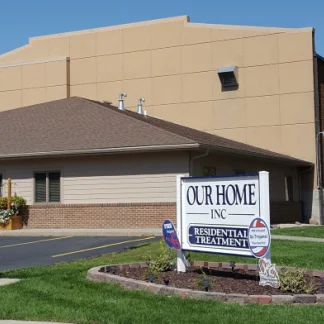Our Home
Parkston, South Dakota, 103 West Maple street, 57366
Available Programs
- Adolescence program
- Program for men
- Program for women
Insurance and Financial
- Self-pay options
- Private insurance
About this Facility
Our Home programs are based on the philosophy of holistic health and strive to assess youth problems in an accurate manner, using approved adolescent testing procedures. Our Home program works with youth who have experienced chemical use and/or have had their lives impacted by other's chemical use.
Contact us for more information: (605) 928-7907

Contact Our Home
Connect with Our Home by calling their admissions team directly.
(605) 928-7907 Website Get Directions